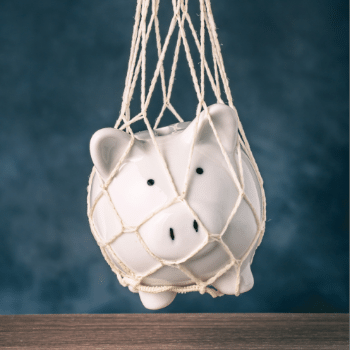How to recognize - and avoid! - the web's main financial scams
 Financial scams – meaning those whose main purpose is to steal a victim's money - have increased exponentially in 2020. This increase has a logical explanation: With the new coronavirus (SARS-CoV2) pandemic and the need to stay isolated at home, people have been making more financial transactions (including purchases, movements, and investments) over the Internet, creating a great "business opportunity" for cybercriminals.
Financial scams – meaning those whose main purpose is to steal a victim's money - have increased exponentially in 2020. This increase has a logical explanation: With the new coronavirus (SARS-CoV2) pandemic and the need to stay isolated at home, people have been making more financial transactions (including purchases, movements, and investments) over the Internet, creating a great "business opportunity" for cybercriminals.
As usual, according to data from the Brazilian Federation of Banks (Febraban), the most affected group are the elderly - a 60% increase in the number of attacks against senior citizens was identified. Moreover, credit cards continue to be the object most sought by cyber crooks, since 58% of all financial scams registered over the past year used this type of asset. No wonder it has become quite common to find leaked cards on the dark web.
My card was stolen!
Credit card scams come in all kinds of formats. The most common is the good old phishing: you receive an email from some platform you use (Netflix, Spotify etc.) telling you that your card was declined and that you need to enter your data again to make a new charge. The website visited, however, is fake, and designed to capture the numbers entered and send them directly to the scammer. Similarly, fake pages that impersonate large online stores are also common.
But there is more: Febraban also issued a warning about a 70% increase in the number of scams involving fake employees and fake call centers, where the scammers call the victim pretending to be a banking institution and request that their financial information be confirmed. Most of the time, the scammers already know some of the victim’s personal (data obtained through other leaks) in order to make the conversation more credible.
You also need to be careful with credit card readers - many people forget that it is possible to use modified payment terminals (hardware and software) to steal credit card data and passwords. Although this is a classic threat, equipment installed in ATM terminals is used; because of this, it is always a good idea to prefer the use of NFC technology, so that your credit card can be recognized without contact.
Other Risks
In addition to credit cards, there are also fake investment professionals. Taking advantage of the healthy tendency Brazilians have of investing their savings, these scammers build their portfolios dishonestly by injecting money in economic bubbles, in pyramid schemes or even fraudulent ICOs (initial coin offerings) for their own benefit. In the end, they win and you lose your investments.
Speaking of ICOs, cryptocurrencies are increasingly becoming popular among Brazilians, but be careful before buying or selling tokens (whether bitcoins or any other altcoin). There are several fraudulent exchange houses - some quote prices that are out of line with reality and others simply take your money as soon as you make the deposit.
In general, the tips for avoiding financial scams are the same as for other types of social engineering attacks: be wary of outlandish proposals, urgent messages, promotions that seem too good to be true, and professionals/businesses/shops that you have never heard of. And, of course, don't forget to always help those around you who have less knowledge of how the Web works - join Hacker Rangers and help combat Internet crime!
Article translated from: Como reconhecer — e evitar! — as principais fraudes financeiras da web — Perallis Security
